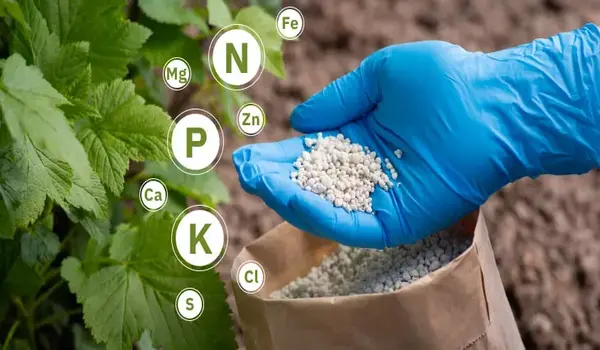When it comes to growing healthy and productive crops, NPK fertilizers play a crucial role by supplying the three essential nutrients: nitrogen, phosphorus, and potassium. But did you know that the effectiveness of these fertilizers depends heavily on soil conditions? Farmers often overlook that the soil’s physical, chemical, and biological properties determine how well plants absorb these nutrients. So, how exactly do soil conditions affect the performance of NPK fertilizers? Let’s explore the connection between soil health and fertilizer effectiveness and how you can optimize conditions for better crop yields. One of the most critical factors that affect how well NPK fertilizers work is soil pH. Soil pH measures how acidic or alkaline the soil is, and it influences nutrient availability to plants. NPK fertilizers may contain the ideal ratio of nitrogen, phosphorus, and potassium, but if the pH is too high or too low, plants may not be able to absorb them effectively. It’s essential to test your soil’s pH before applying NPK fertilizers. If the soil is too acidic, applying lime can help neutralize it. For alkaline soils, adding sulfur can help bring the pH down. By maintaining a neutral pH (around 6.5-7), you ensure that your plants can fully benefit from the fertilizers you apply. The physical structure of the soil also has a huge impact on how well NPK fertilizers perform. Soil texture, whether sandy, loamy, or clay-heavy, affects how nutrients are retained and made available to plants. Improving soil structure with organic matter like compost can help retain nutrients and improve drainage. Products like Humic Factory’s humic acid granules are excellent for enhancing soil structure. Humic acid helps loosen compacted soils and improves water retention in sandy soils, making nutrients from NPK fertilizers more available to crops. Soil rich in organic matter tends to be more fertile and better at holding onto nutrients. Organic matter, such as decayed plant material or compost, enhances the soil’s ability to retain nutrients from NPK fertilizers. It acts like a sponge, holding nutrients in place and releasing them slowly as plants need them. Without enough organic matter, nutrients can easily leach away or become locked in the soil, making them less available to plants. Incorporating organic matter into your soil before or after applying NPK fertilizers can significantly improve nutrient uptake. Compost, manure, and products like Humic Factory’s organic biofertilizers can boost the organic content of your soil, helping to stabilize nutrient levels and improve plant growth. Healthy soil is alive with microorganisms that help break down organic matter and make nutrients available to plants. When soil has a high level of microbial activity, it can convert the nutrients from NPK fertilizers into forms that plants can easily absorb. However, overuse of chemical fertilizers or pesticides can harm beneficial microbes, reducing the soil’s natural fertility. Using products that promote microbial health, such as Humic Factory’s bio-enhanced products, can restore the natural balance of your soil. By enriching microbial life, you ensure that NPK fertilizers are broken down efficiently and used by your crops in the best possible way. Water plays a crucial role in nutrient absorption. The nutrients from NPK fertilizers need to be dissolved in water before plants can take them up through their roots. If the soil is too dry, fertilizers may remain in the soil but be unavailable to the plants. Conversely, too much water can cause nutrients, especially nitrogen, to leach out of the soil before plants can use them. It’s essential to maintain adequate moisture levels in the soil to ensure that fertilizers work effectively. Products like Humic Factory’s liquid biofertilizers can help retain moisture and prevent nutrient leaching, providing a more stable environment for plant growth. The effectiveness of NPK fertilizers depends not just on the type or amount of fertilizer you use, but also on the condition of your soil. Factors such as pH, soil structure, organic matter content, microbial activity, and moisture levels all influence how well plants can absorb and use the nutrients from NPK fertilizers. To maximize the impact of NPK fertilizers, it’s crucial to maintain healthy soil. Products from Humic Factory, including humic acid granules, biofertilizers, and soil conditioners, can enhance your soil’s structure, improve nutrient retention, and promote microbial health. By paying attention to soil conditions and applying the right products, you can ensure that your crops get the nutrients they need for balanced, healthy growth. In farming, the key to success lies in the soil. When you take care of your soil, the fertilizers you apply—whether synthetic or organic—will work more effectively, leading to healthier crops and better yields. So, next time you plan to use an NPK fertilizer, don’t forget to assess your soil conditions. By doing so, you’ll make sure your crops can fully benefit from the nutrients and grow to their fullest potential.1. Soil pH and Nutrient Availability
How to Improve:
2. Soil Structure and Drainage
How to Improve:
3. Organic Matter Content
How to Improve:
4. Soil Microbial Activity
How to Improve:
5. Soil Moisture Levels
How to Improve:
Conclusion: Balancing Soil Health and Fertilizer Use


Submit your contact number to receive exclusive updates
Something went Wrong Please try again!!!
Bulk Purchase
Get Bulk Discount
Get Discount Code now
फोन नंबर सबमिट करे और ऑफर पाए
We believe farming is hard. This is our attempt to support farmers. Submit your contact details to receive a discount and other offers from Humic Factory.

Recommended Products
COPYRIGHT © 2024. All Rights Reserved By Humic Factory


